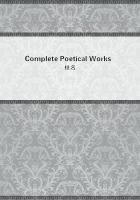1.In the Lord Mayor and Court of Aldermen is lodged the executive power in a great measure, and by these most of the city officers are appointed, viz., the recorder, four common pleaders, the comptroller of the chamber, the two secondaries, the remembrancer, the city solicitor, the sword-bearer, the common hunt, the water bailiff, four attorneys of the Lord Mayor's Court, the clerk of the chamber, three sergeant carvers, three sergeants of the chamber, the sergeant of the chanel, the two marshals, the hall-keeper, the yeomen of the chamber, four yeomen of the waterside, the yeoman of the chanel, the under water-bailiff, two meal weighers, two fruit-meters, the foreign taker, the clerk of the City works, six young men, two clerks of the papers, eight attorneys of the Sheriff's Court, eight clerks fitters, two prothonotaries, the clerk of the Bridge House, the clerk of the Court of Requests, the beadle of the Court of Requests, thirty-six sergeants at mace, thirty-six yeomen, the gauger, the sealers and searchers of leather, the keeper of the Greenyard, two keepers of the two compters, the keeper of Newgate, the keeper of Ludgate, the measurer, the steward of Southwark (but the bailiff of Southwark is appointed by the Common Council) the bailiff of the hundred of Ossulston, the City artificers, and rent-gatherer, who hath been put in by Mr.Chamberlain.
In this court all leases and instruments that pass under the City Seal are executed; the assize of bread is settled by them; all differences relating to water-courses, lights, and party-walls, are determined, and officers are suspended or punished; and the aldermen, or a majority of them, have a negative in whatever is propounded in the Common Council.
2.The Court of Hustings is esteemed the most ancient tribunal in the City, and was established for the preservation of the laws, franchises, and customs of it.It is held at Guildhall before the Lord Mayor and Sheriffs, and in civil causes the Recorder sits as judge.Here deeds are enrolled, recoveries passed, writs of right, waste, partition, dower, and replevins determined.
3.The Lord Mayor's Court, a court of record, held in the chamber of Guildhall every Tuesday, where the Recorder also sits as judge, and the Lord Mayor and Aldermen may sit with him if they see fit.
Actions of debt, trespass, arising within the City and liberties, of any value, may be tried in this court, and an action may be removed hither from the Sheriff's Court before the jury is sworn.
The juries for trying causes in this and the Sheriff's Courts, are returned by the several wards at their wardmote inquests at Christmas, when each ward appoints the persons to serve on juries for every month in the year ensuing.
This court is also a court of equity, and gives relief where judgment is obtained in the Sheriff's Court for more than the just debt.
4.The Sheriff's Courts are also courts of record, where may be tried actions of debt, trespass, covenant, &c.They are held on Wednesdays and Fridays for actions entered in Wood Street Compter, and every Thursday and Saturday for actions entered in the Poultry Compter.Here the testimony of an absent witness in writing is allowed to be good evidence.
5.The Chamberlain's Court or office is held at the chamber in Guildhall.He receives and pays the City cash and orphans' money, and keeps the securities taken by the Court of Aldermen for the same, and annually accounts to the auditors appointed for that purpose.He attends every morning at Guildhall, to enroll or turn over apprentices, or to make them free; and hears and determines differences between masters and their apprentices.
6.The Court of City Orphans is held by the Lord Mayor and Aldermen as often as occasion requires; the Common Sergeant being entrusted by them to take all inventories and accounts of freeman's estates, and the youngest attorney in the Mayor's Court is clerk of the orphans, and appointed to take security for their portions; for when any freeman dies, leaving children under the age of twenty-one years, the clerks of the respective parishes give in their names to the common crier, who thereupon summons the widow or executor to appear before the Court of Aldermen, to bring in an inventory, and give security for the testator's estate, for which they commonly allow two months' time, and in case of non-appearance, or refusal of security, the Lord Mayor may commit the executor to Newgate.
7.The Court of Conscience was established for recovering small debts under forty shillings at an easy expense, the creditor's oath of the debt being sufficient without further testimony to ascertain the debt.This court sits at the hustings in Guildhall every Wednesday and Saturday, where the Common Council of each ward are judges in their turns.They proceed first by summons, which costs but sixpence, and if the defendant appears there is no further charge; the debt is ordered to be paid at such times and in such proportion as the court in their consciences think the debtor able to discharge it; but if the defendant neglect to appear, or obey the order of the court, an attachment or execution follows with as much expedition and as small an expense as can be supposed.All persons within the ******* of the City, whether freemen or not, may prosecute and be prosecuted in this court, and freemen may be summoned who live out of the liberty.
8.The courts of wardmote are held by the aldermen of each ward, for choosing ward-officers, and settling the affairs of the ward, the Lord Mayor annually issuing his precept to the aldermen to hold his wardmote on St.Thomas's Day for the election of common councilmen and other officers; they also present such offences and nuisances at certain times to the Lord Mayor and common councilmen as require redress.















